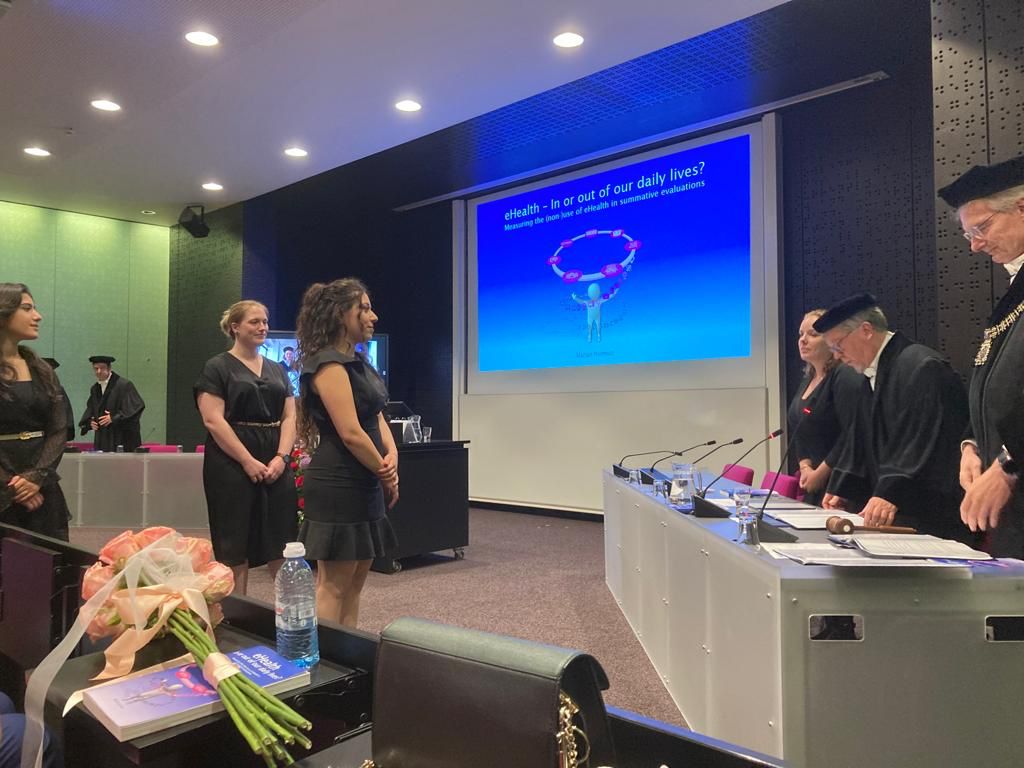While there are many different eHealth services (being) developed, its use among the target population is still low. Marian Hurmuz aimed within her PhD to increase our understanding about the (non-)use of eHealth services among the target population in a real-world setting. After a bit more than 3 years, she finalised her PhD thesis and, last week Thursday, she had her PhD defence.
Her thesis is available online on our website here. The studies described within this thesis cover the following topics:
- Exploring demographics and personality traits of older adults which can predict dropping out of an eHealth service.
- Investigating which determinants of the Technology Acceptance Model explain older adults' use and intention to continue using a gamified eHealth service.
- A case study which shows how you can evaluate an eHealth service in a real-world setting with mixed methods.
- Qualitatively investigating barriers and facilitators adults with neck and/or low back pain perceive when using an mHealth app.
- Identifying the reasons of potential end-users to participate in eHealth studies, the influence of these reasons on the use of eHealth, and their expectations about these studies.
This thesis ends with a general discussion about the main findings. This discusses the use of eHealth and the intensity of use among different eHealth services, the different aspects which can be used to measure eHealth use, how eHealth use can be improved, recommendations on improving summative eHealth evaluations, and finally it discusses topics for future studies.
We are very proud of Marian that she completed her work at RRD in this fantastic way. In recent years she has done a lot of work in various European projects and we are grateful for that.
With the ends of her PhD, we are looking forward to see how she will go on working on this important topic!

